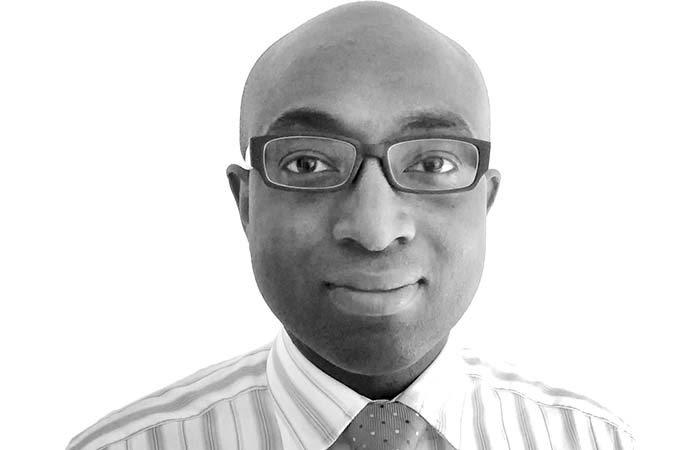The heavy cost of social injustice in pharmacy
In Views
Follow this topic
Bookmark
Record learning outcomes
Reading the ‘Pharmacy Workforce Race Equality Standard Report’ and the RPS report ‘Chasing Equality in Pharmacy Training – Closing the Awarding and Attainment Gap for Black trainees in Pharmacy’, Ade Williams is left feeling bereft
Anyone in the profession, especially those in leadership roles or with supervisory responsibility, who is not familiar with the insights and conclusions presented in these reports should reflect and perhaps even ask themselves how they can afford not to know about this?
Why? To borrow a phrase from the Pharmacy Workforce Race Equality Standard report: “The report’s aim is to bring about the positive change we wish to see in people’s experiences of career progression, discrimination and racism, to ensure all colleagues are treated with the respect and fairness that they deserve, and that we retain the skills and maximise the potential of our diverse pharmacy workforce.”
Are these reports accurate reflections of how bad things are? Do they capture the depths of generational pain and despair that colleagues have lived through? Are the proposed remedial actions far-reaching enough? Do they stand any chance of success? Those questions are worthy of deliberation, but I want to speak briefly about three things that caught my attention: attraction, retention and excellence in community pharmacy.
Racial discrimination and its impact on American society is not merely a stark historical narrative; this abhorrent reality is sadly still a daily lived-out experience for many. To borrow a recurring phrase used by everyone who quotes the Citigroup Closing the racial inequality gap report, this ‘gap’ in the last 20 years has cost the US economy $16 trillion.
Dr Martin Luther King Jr. wrote: “We are caught in an inescapable network of mutuality, tied in a single garment of destiny. Whatever affects one directly affects all indirectly.” In a world where social status can shield you from the mutuality of humanity in your daily life, healthcare, especially the NHS, is often where the seams of this garment meet.
The NHS, like other parts of society, does not come out in the best light. Yes, its makeup represents the UK society’s different facets and identities. However, I believe it fails in being true to its values, namely the post-war ideal of providing equity and universality of excellent care irrespective of a patient’s background and social status – the very ethos that gave birth to the health service.
This failure starts from how we treat those who deliver care and work within the NHS and, sadly, to patients and carers. Community pharmacy? It has inherent popular appeal and looks very inclusive. Most of our teams are representative of the communities they care for. Is pharmacy what others should aim to be like? In the profession, we have a significant majority female gender membership. Many have attained well-deserved leadership roles but are still well under-represented, much to our collective loss. Gender equality, though, has always been a struggle.
Take this example: The Equal Pay Act of 1970 gave women the right to the same contractual pay and benefits as men in the same employment, but some employers got around it by creating different job titles for women or by raising women’s rates to the lowest male rate, even when those women’s jobs were more demanding.
Of course, we must not forget that the 1946 Royal Commission report on Equal Pay’s recommendation that women in teaching and certain grades of the civil service should be on equal pay with men was rejected, along with the minority view that equal pay should be extended to women in industry.
There are signs that the post-pandemic attraction in healthcare roles is now waning. There will be a plethora of reasons for this. Still, one thing is sure: in a world where you have many choices and opportunities, signing up to join a profession where you will need to assert your value, not least from the beginning of your academic journey, is not appealing to this generation.
Social consciousness is now a shared value that brings people together and attracts them to things. We must recognise that the inequity we fail to address limits us, not them. Diversity is not an aspiration; it is the life known. Inclusiveness has become a mainstay, even in its imperfect expressions, not least where social interactions and connections can be formed through filters and choreographed outputs. Your person, ideas and contributions are welcome. If you ever feel this is not the case, move on to a new space where you are welcomed and valued.
The most successful and dynamic workplaces and industries are diverse and inclusive. They champion socially conscious mindsets and adopt working practices that reinforce these values. They also foster excellence. The best people are attracted to them to grow and flourish, helping others to do likewise.
The tale of these reports is that pharmacy is not yet that type of ecosystem, and never has been. It is not good enough for today, and it will undoubtedly cost us the tomorrow we desire.
Ade Williams is a community pharmacy contractor in Bristol

